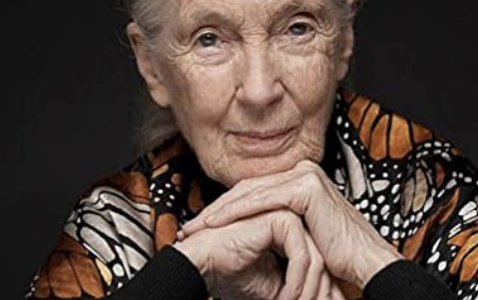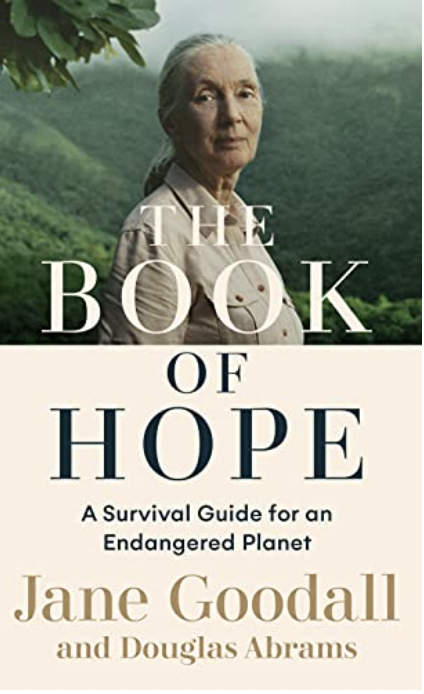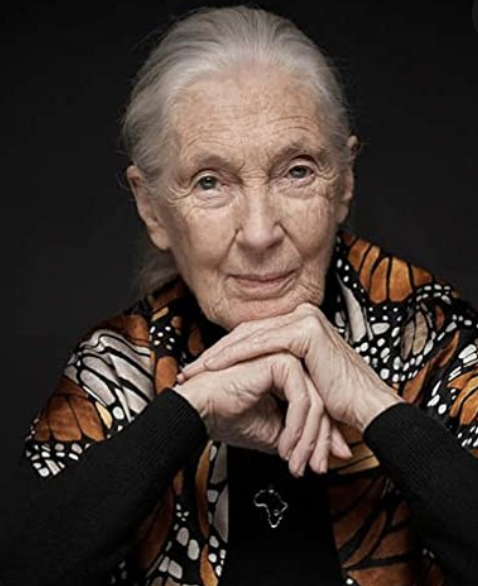
Endangered Planet survival guide


Back in 1800s the human race have worked out more carbon dioxide in the atmosphere, the more the Earth’s temperature will rise, as the global warming had begun and there should be striking changes in the climate unless it burned less carbon releasing fossil fuels.
Its use of coal, oil and gas continued to boom, despite alarming evidence of flooding, Sweltering heat and other extreme weather events that it knew will only accelerate.
Jane Goodall, who turned 87 this year, is a world-renowned naturalist and conservationist who has spent more than fifty years warning of our impact on our planet. From the famous encounters with Chimpanzees in the forests of Gombe as a young woman to her tireless campaigning for the environment in her late eighties, Jane has become the godmother to a new generation of climate activists.
Janes draws on the wisdom of a lifetime dedicated to nature in her The Book of Hope, to teach us how to find strength in the face of the climate crisis, and explains why she still has hope for the natural world and for humanity in extraordinary conversations with her co-author and a US writer and literary agent, Douglas Abrams that bring together stories from her travels and activism, she offers readers a new understanding of the crisis we face and a compelling path forward for us all to create hope in our own lives and in the world.
The world needs a manifesto of hope now more than ever. This book shows the way forward even in the face of great adversity, we can find hope in human nature and in nature itself.
Goodall explains why we should think of hope as anything more than a panacea amid today’s political turmoil and remorseless environmental destruction.
Climate activist Greta Thunberg, bluntly told the 2019 World Economic Forum : “ I don’t want your hope. I don’t want you to be hopeful. I want you to panic” and then act as if “our house is on fire, because it is. But if we do not have hope that we can put the fire out.We will give up”.
Goodall having grown up during the Second World War, lived through the cold war arms race and witnessed 9/11 while in New York, offers four reasons to believe all is not lost, starting with human intellect. It has brought bloodshed and misery but also the capacity to understand how global problems can be solved.
Goodall’s conservation work with young people strengthens the belief “this generation is different” and is poised to address environmental disaster and injustice in a way their parents have not.
She also explains the indomitable human spirit embodied by a string of individuals she has come across.
The Chinese men one blind, and one armless, for example who planted thousands of trees around their polluted village.
She makes the case for resilience of nature reminding us that the natural world can bounce back powerfully – if human allows it.
There is a tree that survived the 1945 Nagasaki atomic bomb.
The wolves wiped out in Yellow Stone national park, that once reintroduced in the 1990s, restored the balance of ecosystem enough to drive the recovery of birds, beavers and bears.
The first winners include a coral-growing project in the Bahamas and the country of Costa Rica, an eminent rain forest restorer.
The Book Hope: A Survival Guide for an Endangered Planet by Jane Goodall and Douglas Abrams, Viking £16.99 / Celadon Books $28, 272 pages.
